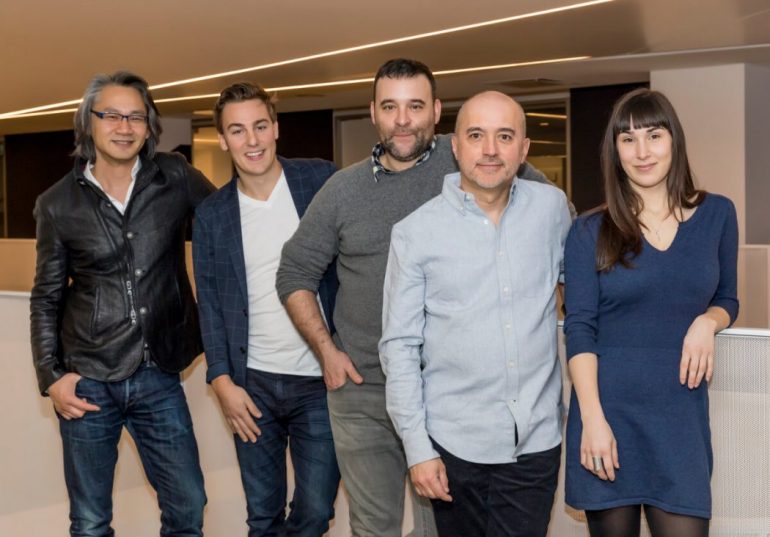Four former members of the 500 Canada team have closed an initial $25 million for Panache Ventures, an early-stage venture capital fund that says it aims to be “the most active and best performing fund of its kind in the country.”
Panache Ventures was launched by Mike Cegelski, managing partner for Montreal; Patrick Lor, managing partner for Calgary; David Dufresne, partner at Montreal; and Nicolas Bouchard associate at Montreal. Dufresne and Cegelski were partners at 500 Canada’s Montreal outpost, while Lor was leading the Calgary office. Bouchard acted as an associate for 500 Canada in Montreal.
Panache — whose investors include Investissement Quebec, Fonds de solidarité FTQ, Alberta Enterprise (which invested $5 million), and active angel investors — is hoping to raise $40 million for its fund.
The firm says it is taking a generalist approach to its investment thesis; over the next three years, the fund will invest in 100 companies, though that number could stretch to 140 companies if Panache meets its $40 million goal.
Now that 500 Startups does not have a fund in Canada, Panache Ventures is assisting with deal flow in Canada and co-investing.
“We can’t really disqualify huge sectors; we don’t know where the next Canadian unicorn will come from. We try to keep horizons very broad to look at these deals,” Dufresne told BetaKit. The average first cheque to companies will be $150,000, with follow-on funding sitting at $500,000.
The firm will also be industry-agnostic for its seed and pre-seed investments, with a valuation of a few million to $100 million plus within five or six years. Although the obvious standout sectors are companies working in AI, cybersecurity, and blockchain, Panache is also looking at VR, enterprise SaaS, and data analytics.
If that approach sounds familiar, it’s because it closely follows 500 Canada’s stated philosophy when it launched in July 2016, right down to the cheque sizes. The general philosophy for 500 model was diversification: finding as many startups as possible that could succeed, and doubling down on the ones that show promise.
Speaking with BetaKit over the phone, Dufresne indicated that 500 Canada’s model was the inspiration for Panache Ventures. The organization, which raised an initial $25 million in 2017, made the decision to stop new investments and fundraising for the fund in July 2017 following stories of 500 Startups founder Dave McClure’s sexual misconduct.
Dufresne told BetaKit that after those stories came to light, target LPs of the 500 Canada fund said that while they liked the investment team and thesis for Canada, they would not invest if McClure exercised any control or saw any benefit the institutional investors, which corresponds with BetaKit’s reporting at the time.
“We rallied up and said, what do we want to do? Are we updating our resumes, or are we building on what we’ve learned and what we’ve accomplished?”
– David Dufresne
“It’s unfortunate what happened,” Dufresne said. “We made the right decision protecting our investors’ reputation and protecting ourselves, but paving the way for us to raise a larger fund.”
“It’s been five months of fundraising, and it’s been a rollercoaster with emotional lows and highs, but now we’re in a situation where we have a new fund that’s our own brand, that’s going to be able to grow in the market while keeping a good strategic relationship with 500 Startups and a lot more acclerators and incubators. So it’s unfortunate, but I think the outcome will be better for us.”
Cegelski, Lor, and Dufresne are still on the investment committee with founding members Sanjay Singhal and Neha Khera for the 500 Canada fund as it completes follow-on investments and transitions until the money is gone, with plans for the founding team to continue advising startups that have received funding from 500 Canada.
“After making a decision, we rallied up and said, what do we want to do? Are we updating our resumes, or are we building on what we’ve learned and what we’ve accomplished in the year or so that we’ve been active in 500 Canada? And basically the four of us made that decision,” said Dufresne. “[We] started fundraising, we went back to most of the investors in 500 Canada who said they would support us if we launched something new, and three of the five institutions we were talking to at that point agreed to fast track the due diligence process to get this done, so we were done in about five months to get a plan together and get it to the close that we did last week.”
However, the team’s connection to 500 Startups itself isn’t completely severed. Now that 500 Startups does not have a fund in Canada, Dufresne said that they are helping the organization with deal flow in Canada and co-investing.
“So it’s basically the same agreement on that part of the seed program that we had with 500 Canada, and we’re in the process of renewing it with Panache. So I think it’s great news that these Canadian companies are able to take part in one of the top accelerators in the world…and after four months they come back to Canada having gotten an education and a network,” said Dufresne. “They still wanted us to send them great Canadian companies, we kind of renegotiated that part of the agreement, so Panache can recommend companies to the seed program of 500 Startups, and if companies get accepted into the program, then Panache and 500 Startups US are co-investing.”
Panache Ventures said it will rarely lead investments, instead choosing to join deals with angel investors and specialized funds, and supporting companies with their expertise in scaling teams and sales revenue. So far, the fund has committed to 11 investments across Canada, and is on the hunt for a partner in Toronto.
The company’s current disclosed investments include:


